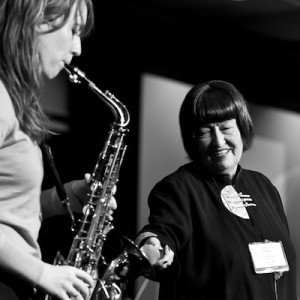If you want to major in jazz, you need an understanding and appreciation of the unique aspects of this genre.
MajoringInMusic.com spoke with Dr. Lou Fischer, bassist, jazz professor at Capital University Conservatory of Music, and former president of the Jazz Education Network (JEN). Fischer’s background includes over 40 years as a performer and composer in the entertainment industry, and as guest director, clinician and adjudicator at international jazz festivals and at high schools, All-State jazz events, and universities across the US.
1. What’s different about jazz auditions from any other type of audition?
“The improvisation component, says Fischer, “is what sets jazz auditions apart from any others. Improv is what makes jazz, jazz.” Each school, of course, will differ in terms of its expectations of how savvied applicants actually need to be at audition time.
“Some schools,” he notes, “put an emphasis on style…they want to see flexibility and what you’ve been exposed to. Some also want to see what you do with things that are new to you.” Fischer urges students to read through each school’s audition requirements very carefully. “Make no assumptions!” he warns. “Colleges are looking for your ability to follow directions to a “T.”
Be prepared to tailor your audition to each school you apply to. You basically get one shot at it because schools don’t have the time or staff to go back and forth with you to help you make changes or corrections if you neglect to read their audition requirements carefully.
What about video interviews? Fischer believes that if offered that opportunity, “you should go for it…it saves money and time.” But he also acknowledges that many schools want you to audition live.
Note that virtually all Bachelor of Music programs will require auditions. But for Bachelor of Arts majors, it may vary from school to school and major to major.
2. How is studying jazz changing?
Fischer sees no decline in interest in studying jazz on the college level. In fact, at his university, the number of students applying “is growing like crazy.” But the demands on students are changing and growing as well. Technology is an important part of the curriculum but so is learning about the history of the music. A focus on career development is also an essential part of the education of a jazz musician. Students need to pay attention to what audiences are interested in, as well as how to attract and keep those audiences filling the seats and buying the music.
Working gigs while going to school is an important aspect of majoring in music, say Fischer. So is learning to network. And developing a breadth of skills is also necessary. “You may have to pay your dues,” he explains. “It’s not demeaning to look at what else you are good at (besides performing). Sometimes you need to know how to ‘subsidize your passion.'”



Leave a Reply